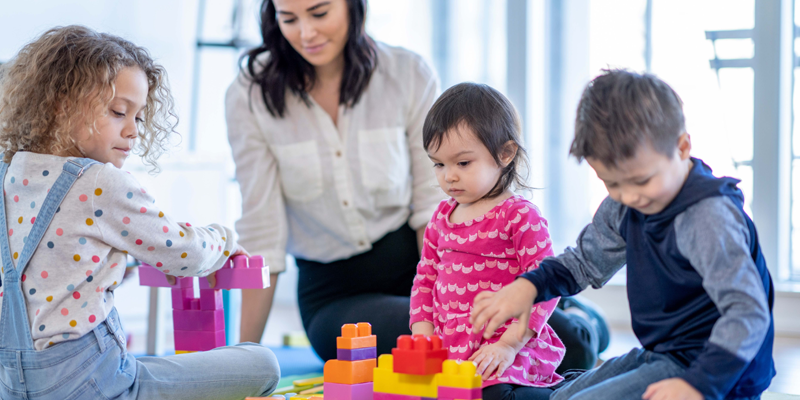
Daycare at Home: Fostering Early Learning and Social Development
The early years of a child's life are a critical period for growth and development, where the foundation for future learning and social skills is laid. Daycare at home, also known as home daycare, has emerged as a popular and nurturing option for parents seeking early childhood education and socialization for their children. Unlike traditional daycare centers, home daycare offers a warm and family-like environment that promotes individualized learning and social development. In this blog, we will explore the benefits of daycare at home and how it fosters early learning and social development in young children.
Individualized Learning
Daycare at home provides a unique advantage in offering individualized learning experiences for each child. With smaller group sizes, home daycare providers can focus on the specific needs, interests, and learning styles of each child. This personalized approach enables caregivers to tailor activities and learning opportunities to suit the child's developmental stage, encouraging active engagement and curiosity.
Home daycare providers can also incorporate the child's interests into the daily curriculum, fostering a love for learning. Whether it's exploring nature, engaging in art, or participating in pretend play, daycare at home offers a diverse range of activities that cater to the child's individual preferences and strengths, promoting a positive attitude towards education.
Nurturing Socialization
Socialization is a crucial aspect of early childhood development, as it lays the foundation for building relationships, empathy, and communication skills. In home daycare, children have the opportunity to interact with a small, consistent group of peers, fostering a sense of belonging and community. This social setting allows children to practice sharing, taking turns, and resolving conflicts, essential skills that prepare them for future social interactions.
Moreover, the family-like environment of home daycare encourages a sense of security and comfort, which can be particularly beneficial for shy or introverted children. As children form close bonds with their caregivers and peers, they develop a positive self-image and a strong sense of trust in their surroundings.
Flexible and Play-Based Learning
Daycare at home places a strong emphasis on play-based learning, recognizing that play is the primary mode of learning for young children. Home daycare providers create an environment that encourages open-ended play, imagination, and creativity. Through play, children explore the world around them, solve problems, and develop essential cognitive and motor skills.
Home daycare providers incorporate structured learning activities seamlessly into play, promoting early literacy, numeracy, and problem-solving skills. Play-based learning not only makes learning fun and enjoyable for children but also fosters a sense of autonomy and independence as they take the lead in their own learning experiences.
Continuity of Care
In daycare at home, children benefit from continuity of care as they build strong and consistent relationships with their caregivers. Unlike larger daycare centers where children may interact with multiple caregivers, home daycare provides a stable and nurturing environment with consistent caregivers. This continuity of care is especially beneficial for young children, as it enhances their sense of security and trust.
Home daycare providers get to know each child's unique needs and preferences intimately, enabling them to respond promptly to the child's emotional and developmental needs. This personalized attention contributes to a positive learning environment, where children feel valued and supported in their exploration and growth.
Home-Like Comforts
Daycare at home offers children the comforts of a home environment, creating a sense of familiarity and comfort. The smaller and more intimate setting allows children to explore freely and at their own pace. Additionally, the presence of age-appropriate toys, books, and learning materials in a home-like setting stimulates children's curiosity and encourages independent exploration.
Furthermore, home daycare often incorporates daily routines that mirror those in a family home, such as mealtimes and nap schedules. These familiar routines provide a sense of stability and predictability, promoting a child's emotional well-being and sense of security.
Daycare at home plays a pivotal role in fostering early learning and social development in young children. The individualized learning experiences, nurturing socialization, flexible play-based learning, continuity of care, and home-like comforts provided by home daycare create an optimal environment for children to thrive during their early years.
The family-like setting of home daycare promotes a sense of belonging and trust, enabling children to develop essential social skills and emotional intelligence. By embracing play-based learning and personalized attention, home daycare providers ignite a lifelong love for learning in children, setting them on a path of exploration and discovery.
As parents seek an early childhood education that embraces the unique needs and interests of their children, daycare at home stands as a beacon of quality early learning, nurturing, and support. With the comforts of home and the guidance of caring caregivers, children in home daycare experience the joy of learning, the joy of play, and the joy of connecting with others during this formative stage of life.
